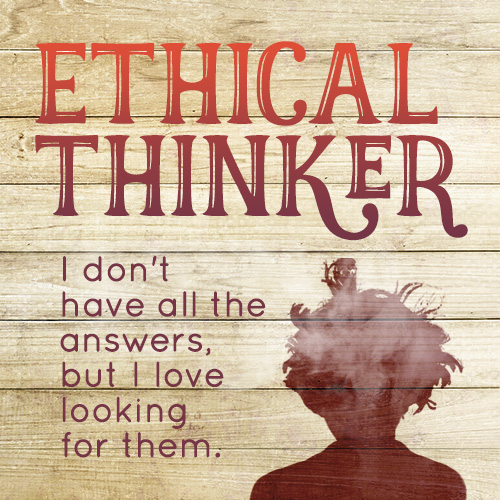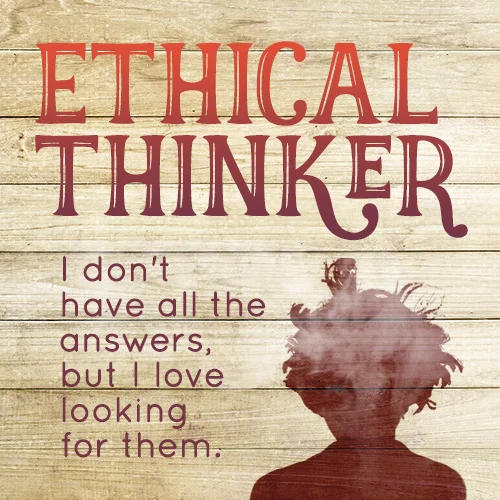Why I abandoned my popular social media presence
/A couple of weeks ago, I had just under 80,000 twitter followers and just over 42,000 facebook fans, but now I don't. I decided a while ago that I was going to start this new blog, but I wasn't sure initially whether I should rebrand on social media (i.e. change my twitter handle and facebook page name) or just start fresh.
"You're giving away 80,000 followers?!", one twitter friend asked/exclaimed in a direct message when I explained what I was doing.
A lot of people have been surprised by my choice, but the more I thought about it, the more it made sense and felt right.
When I started my first blog in 2008, my goal was to grow it. I didn't have specific financial aspirations related to the growth of my blog, but I wanted to share my ideas and I wanted to prove to myself that I had what it takes to grow a successful social media presence. I learned a lot during the seven years that I wrote a popular parenting blog, but I also learned what it means to become a victim of your own success.
Why are you on social media?
Have you ever stopped to think about why you are on social media? For me, it has always been about connecting with people, learning from my community, and contributing to that community. Page views, subscribers, followers and fans were never a stand alone goal. They were a means to an end -- the promise of a potential connection.
What I didn't realize at the time, however, was that the larger my blog became, the less time I would spend connecting with people and the more time I would spend sifting through spam and requests for help from people I don't know. These aren't people who wanted to connect with me. These are people who wanted access to my audience.
I love your blog! Could you....?
I still remember the first time a large parenting site put out a list of Top 50 mom bloggers. Everyone was either thrilled to be on it or annoyed that they (or their friend) had been overlooked. I wasn't on that list, but I was on numerous other lists after that point.
Being put on the Top 10 this and Top 50 that lists is flattering at first glance. In retrospect though, I think the only thing I gained from those lists was a spot on every PR person's e-mail blast list. I get:
- Press releases (for things related to my blog and things that are completely unrelated);
- Invitations to events that are far away from where I live (and no, they won't pay travel);
- High res images of new products or expensive vacation destinations;
- Requests to guest post on my blog from people I've never heard of on topics that are not of interest to my readers;
- Offers for product reviews, giveaways and sponsored posts (although my blog clearly indicated that I don't do those); and,
- Offers to interview "experts" of all kinds (to help the "experts" promote their new book, of course).
Lists lead to more lists (because one lazy editor just borrows another editor's list, makes a few changes, and republishes it) and more lists lead to more spam.
Over the years, I've clicked on unsubscribe links. I've reported messages as spam. I've set up template response e-mails and fired them off (no, I don't accept unsolicited guest posts, no I don't do product reviews, yes I accept ads and here are the specs). I've used unroll.me and e-mail filters to keep as much unsolicited e-mail out of my inbox as possible. The "spam from PR companies" folder that the filters send e-mails to is stuffed full of messages that I've never looked at. Unfortunately, so is my inbox. Technology only goes so far.
On my facebook page, I disabled the function that allows other people to post on the wall because 95% of the time it was spam. Every day I had to go in and delete comments on my facebook posts that were spam. On twitter, if I logged in after being away from the computer for a bit, it was more spam --- support my kickstarter, retweet my blog post, share our new product with your followers, join our twitter sponsored party, retweet our contest. The more intrusive and egregious the request, the more likely it came completely out of the blue from a stranger.
What happened to listening and engaging with people? What happened to "how are you?" I remember when people used to complain about people tweeting what they had for breakfast. Perhaps they still do complain. That never bothered me though. At least their breakfast didn't want something from me.
Everyone is watching...
When my twitter followers and facebook fans started growing at a faster pace, I also felt like I lost sight of who was following me. I couldn't notice each new follower and take in who they were. I started to feel self conscious about everything that I posted. I had to assume at any point that through my own social media channels or through other people sharing my posts that anyone I know, even peripherally, could be following along. Slowly but surely, I started to feel like I was standing naked in the middle of a huge stadium but couldn't see the faces in the crowd. They might be people I know, but they might be strangers. They might be friendly, but they might not. They might be looking at me, or they might be trying to flag down the beer guy. Anything I wouldn't stand up and say it in front of a crowd of 120,000 plus people, I also couldn't say on any of my public social media spaces. I started to retreat to my personal facebook profile, where at least I had some idea who my 666 friends were (yes, that's my current creepy friend count).
Image credit: Steven DePolo on Flickr
...but no one is watching.
Not having a grasp on who was watching was disconcerting, but at the same time it also felt like no one was really watching. Perhaps no one is a stretch. But 80,000 twitter followers doesn't always translate into a lot of engagement or clicks. Anil Dash wrote about this in his article called Nobody Famous. People constantly ask him to re-tweet things that he has no interest in sharing. In his article he wrote that his large following isn't as valuable as people perceive it to be:
Worst of all: Nobody clicks. Well, not nobody, but out of about 550,000 followers on Twitter, it’s very common for fewer than 400 of them to click on a link I share. (That’s .07%!)
My experience on twitter was similar. I was also on twitter's list of suggested people to follow from mid 2009 to mid 2011. I don't know why I was added to the list (nor was I ever notified) or why I was eventually removed. During that time period, my number of followers increased significantly. It had been growing quickly before that and continued growing quickly after that, but I probably gained at least 25,000 followers who joined twitter, followed a bunch of people, and never came back. Even people who were once active twitter users are not necessarily still active. That means that not all of my 80,000 followers are going to see the things that I tweet. Not even close.
For those of you who are analytics geeks like I am, this graphic compares my twitter analytics for my previous large twitter account with the analytics for my new smaller one. In both cases, it is for a fourteen day time period during which I was actively tweeting, but not over-actively tweeting.
Could I have gotten more engagement? Sure. I know how to play that game. Ask mundane questions that everyone has an answer for and tons people will jump in. If I were in it just for the numbers, I could get the numbers. I learned that a long time ago.
Although I had just slightly more than half as many facebook fans as twitter followers, I found the facebook page harder to give up. Despite many people's complaining about the facebook algorithm, it worked for me. When I posted things there, the reach ranged from thousands to tens of thousands to even upward of a million on a really good post. That translated into comments and clicks, in the hundreds to thousands to sometimes tens of thousands. But they were just numbers. So many of them were people who flew in, dropped a comment on one post, and then never said anything again. It didn't feel like a community and more often than not, I ended up playing referee.
Smaller and cozier
I logged into my new e-mail address today and do you know what I found? Other than a few social media notifications, I had just one e-mail. It was an e-mail from a friend just checking in to say hello. Such a breath of fresh air.
On twitter, I don't feel bombarded with spam and requests from strangers. When I see new interactions, they're usually interesting ones from people whose voices I value.
I don't know where this new blog and the related social media presence will go, but for now growth isn't a goal. Finding the right connections, and doing that slowly, is my path forward at the moment.




